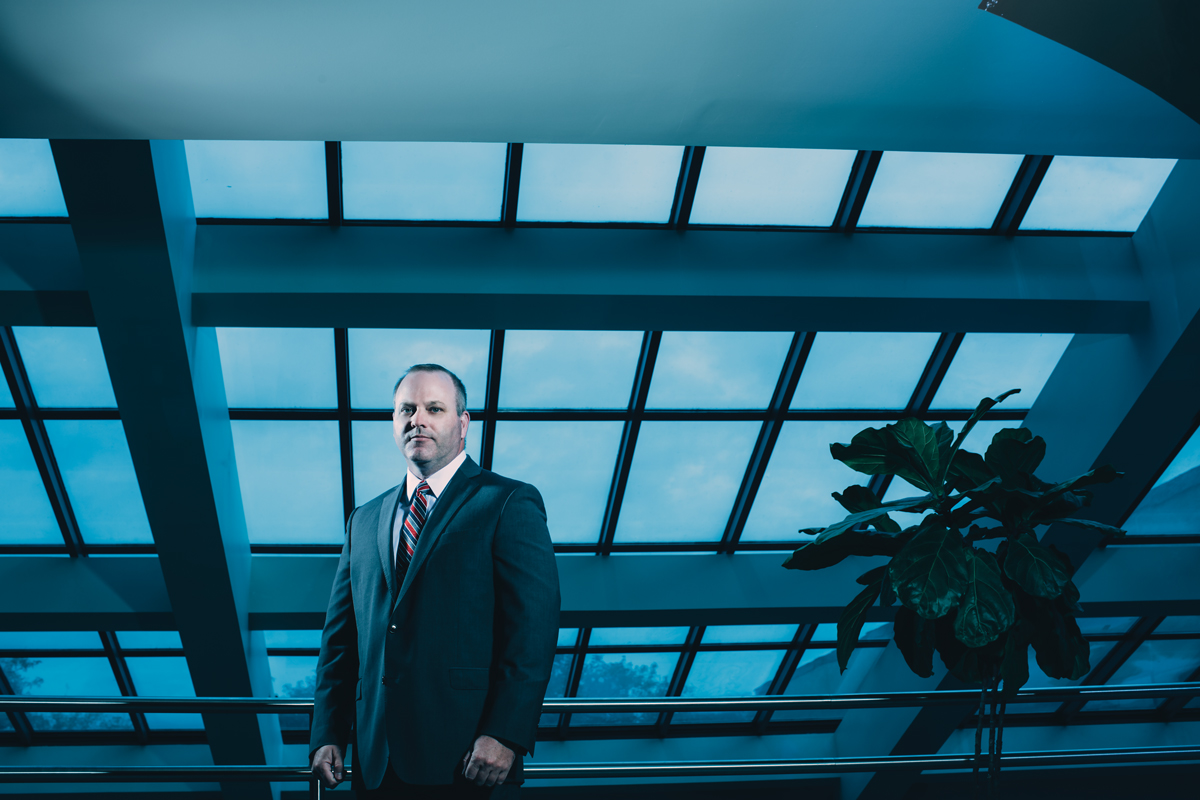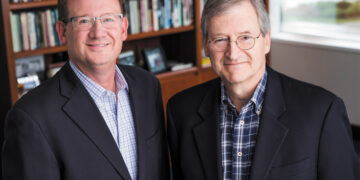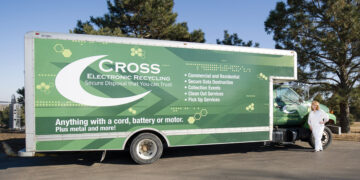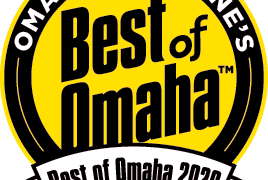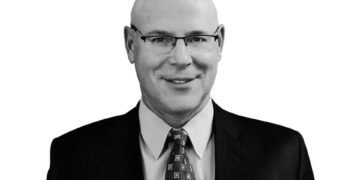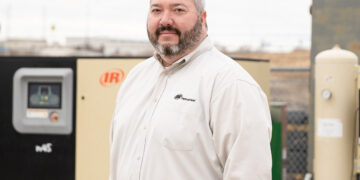Raymond Page can trace his family’s military history to the Civil War and the 7th Pennsylvania Cavalry Regiment. Family members fought in World War I. His namesake grandfather survived a bullet wound after being shot on the beaches of Normandy during World War II.
Such a deep legacy of service may explain why, shortly after entering a university close to his rural northern Pennsylvania home, Page decided he wasn’t cut out for college.
In 1988, at age 18, Page opted to follow his father and two older brothers into the U.S. Air Force. Another kind of education kicked in immediately at Offutt Air Force Base in Bellevue.
“My first career was a radio operator, because I’ve always been into electronics,” says Page, 49. “Eventually I transitioned into meteorology and went to forecasting school. Offutt has the [Air Force Weather Agency] here, so it’s a job-rich environment.”
After ending his Air Force career as a major in 2014 after 26 years in the service, Page contemplated life as a civilian.
As he fielded several opportunities before accepting a position at Mutual of Omaha, Page discovered the reason transitions to the private sector run smoothly here: Omaha businesses need, actively recruit, and above all value veterans.
Why?
“A better question is, why wouldn’t they want to hire a veteran?” observes Jeffrey Owens, vice president of Security Operations at First Data in Omaha and a Marine Corps veteran who enlisted during the Gulf War. “These young people trained, at a very young age, how to be leader[s], how to make decisions under high stress situations.”
The unemployment rate of post-9/11 veterans keeps trending down. According to the latest numbers from the U.S. Labor Department, it stands at 3.3 percent nationwide. Still, many companies wonder why the number of employees with military experience isn’t higher, considering all the recruitment programs in place.
The glitch may lie at the other end of the equation.
“One of the scariest things for military people transitioning is there’s not a direct correlation of jobs [in the private sector],” says Page, echoing the thoughts of many veterans who may wonder, “Where do my skills fit in?”
Page put his skills to the test in two war zones, Afghanistan and Iraq. During the Iraqi invasion in 2003, his weather detachment forecasted a monster three-day sandstorm, putting Army leaders in a position to keep their troops safe and hunkered down.
“Even though I was a weather officer, I had a lot of experience in computer programming,” says Page, who lives in Bellevue with his wife and two children. “Military people, especially Air Force people, are wired to adapt quickly as we move from job to job. We show initiative.”
Owens, who also spent 14 years as a detective with the Atlanta Police Department, can’t speak highly enough of the qualities he observes every day in his employees. ”All the veterans I’ve had the opportunity to manage have exhibited loyalty, hard work, and they have a history and tradition built into them. Why wouldn’t you want those assets?”
Along with a lack of a business network, self-marketing may be a problem with many veterans. Military service focuses on the collective, making it difficult for a veteran to distinguish him-or-herself from the group, which is often an essential part of interviewing.
But that emphasis on the collective means many former service members will appreciate company values, missions, and visions.
First Data, founded in Omaha 47 years ago and now the world’s largest payment processor, reaches out to veterans through its First Data Salutes program. The company offers career opportunities and education resources for military personnel and their spouses; provides point-of-sale and business application technology free of charge to veteran-owned small businesses; and, like many local businesses, grants flex time to members of the National Guard or Reserves.
“What the company says to them is, ‘Hey, your job will be here when you get back.’ That gives them comfort and security while they’re [deployed],” says Owens.
First Data’s efforts on behalf of veterans, who made up 14.4 percent of the company’s Omaha hires last year, have won accolades. Military Times magazine has ranked the company No. 1 on its annual “Best for Vets: Employers” list the past two years, an honor “that cannot be bought, only earned,” according to the magazine’s editor. The rigorous survey, sent to 2,300 companies nationwide, contains 90 questions that companies must fill out and return.
Page’s computer and leadership abilities caught the interest of Mutual of Omaha when the company hosted meet-up groups of software developers. Since joining the insurance company four years ago, he has thrived as an information systems manager.
He has also positioned himself as a trusted adviser for Mutual’s military initiative, the Veterans Employee Resource Board. The group, in conjunction with the HR department, provides mentoring and assistance to people coming out of the service. Quarterly meetings focus on developing business knowledge and honing leadership skills. Members join their fellow Mutual employees in volunteering for community projects several times a year.
Page and other VERB members offer a bridge of understanding when it comes to the language of a veteran recruit’s skill set.
“We also work with managers to help them decipher resumes,” Page points out. “What military people put on a resume is different from a civilian’s resume. I help interpret.”
Page realizes a lack of connections forms the biggest roadblock to people exiting the military. “I tell people to start networking, start visiting companies before they leave the service. Companies love talking to military men and women.”
Here in the Midlands, that’s sound advice.
Visit firstdata.com or mutualofomaha.com for more information.
This article was printed in the October/November 2018 edition of B2B. To receive the magazine, click here to subscribe.



